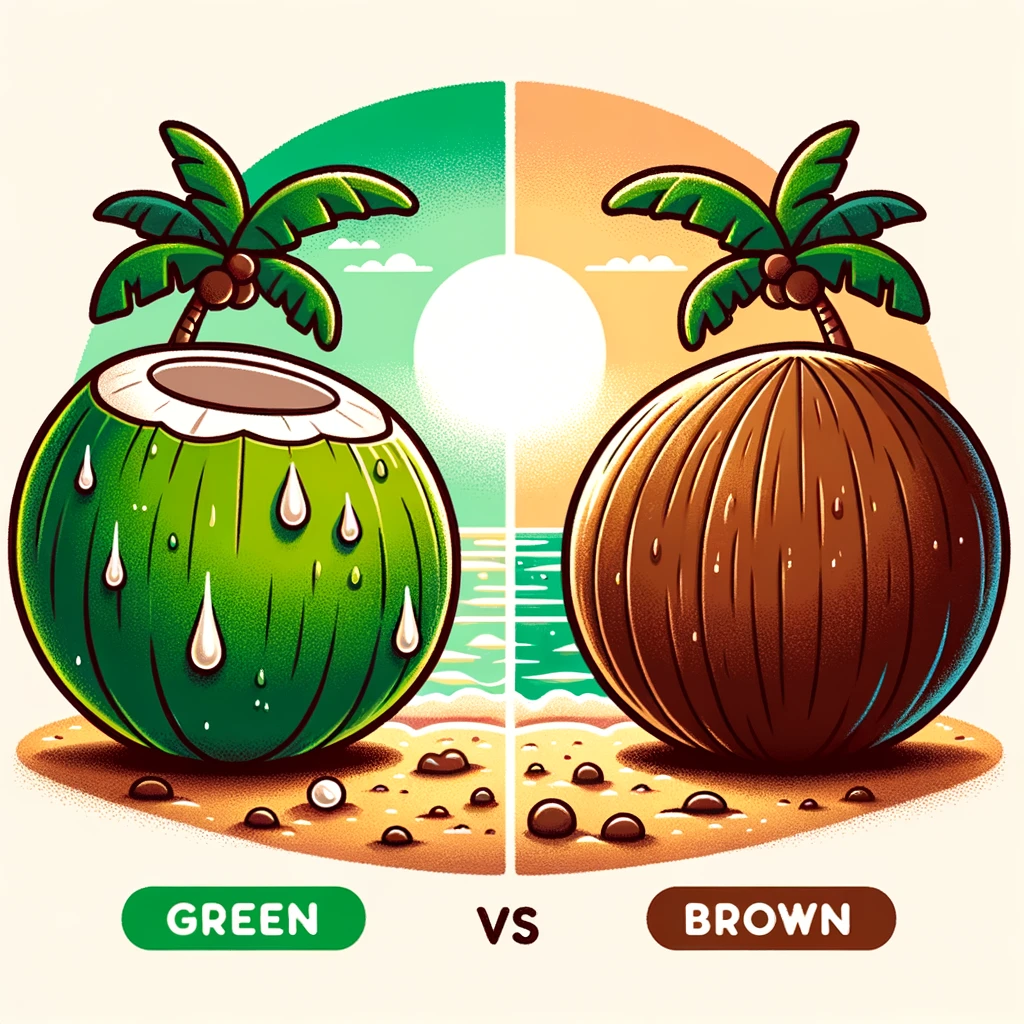Choosing between green and brown coconuts can be a matter of taste, purpose, or both. While both come from the same tree, they are at distinct stages of maturity, each lending itself to different uses. Let’s dive into their differences and determine which type might be the optimal choice for specific needs.
Green Coconut:
1. Stage of Maturity: Green coconuts are young and tender.
2. Water Content: Generally, a big green coconut contains more water, making it ideal for those seeking hydration.
3. Taste: The water from green coconuts is typically sweeter and has a more delicate flavor.
4. Culinary Uses: While the flesh in green coconuts is thinner and softer, it might not be the best choice for substantial culinary endeavors.
Brown Coconut:
1. Stage of Maturity: Brown coconuts are mature with a hard husk.
2. Water Content: Brown coconuts have less water compared to their green counterparts.
3. Taste: Their water is nuttier and might be less sweet.
4. Culinary Uses: The brown coconut’s flesh is dense and rich, making it a superior choice for cooking, especially in dishes that require a substantial coconut texture, such as Indian cuisine.
Green Coconut vs. Brown Coconut Water: Choosing the Best
Which type of coconut water is better for you depends on your individual needs and preferences. If you are looking for a refreshing and low-calorie drink, green coconut water is a good choice. If you are looking for a drink that is high in potassium and magnesium, brown coconut water is a good option.
Here is a breakdown of the key nutrients in green and brown coconut water:
| Nutrient | Green coconut water | Brown coconut water |
|---|---|---|
| Calories | 44 per cup | 60 per cup |
| Sugar | 6 grams per cup | 10 grams per cup |
| Potassium | 170 milligrams per cup | 250 milligrams per cup |
| Magnesium | 10 milligrams per cup | 15 milligrams per cup |
Which One to Choose?

For Drinking: If hydration and a sweeter taste are your primary concerns, a green coconut would be your best bet.
For Cooking: If you’re looking to incorporate coconut flesh into your dishes, especially in cuisines like Indian, the brown coconut, with its thicker and richer flesh, is the preferred choice.
In Conclusion:
The selection between green and brown coconuts should align with your specific needs. Whether you’re in the mood for a refreshing drink or preparing a rich culinary dish, understanding the unique properties of each coconut type ensures you make an informed choice.

